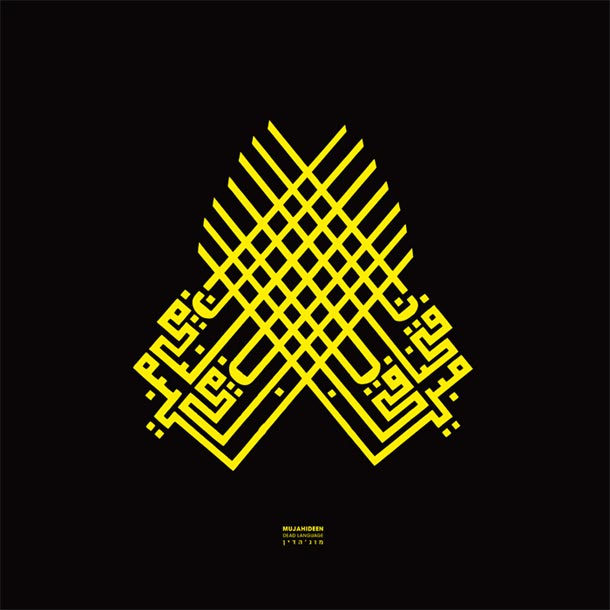MUJAHIDEEN, Dead Language

Mujahideen: un nome che dice tutto se a portarlo è un gruppo israeliano, specie poi se pubblicato da Heart & Crossbone. D’altra parte, non dovrebbe essere sorprendente sentire un salmodiare orientaleggiante in un gruppo post-punk (Lydon, Ferretti…), ma se il “muezzin” è uno che si chiama Alon Ovnat e vive Gerusalemme, ecco che i cortocircuiti cominciano a essere tanti.
Si tratta – secondo quanto leggo – di un trio di veterani della scena alternativa locale, tra i quali anche Uri Crystal, che col suo progetto noise/drone/doom Remesh è in effetti già apparso sull’etichetta di David Opp e Rani Zager. La formazione è particolare: basso, niente chitarra, beats programmati, elettronica. Il disco, infatti, si fa notare soprattutto per la vibrazione di quattro corde spesse come cavi d’acciaio, che si spostano sciolte tra Pop Group, Killing Joke e – appunto – PIL, ma anche per gli effetti che pescano dal dub (pure sulla voce) come dall’industrial. Il mix di influenze di per sé non è nuovo, ma la bravura nel servirlo in tavola è tanta.
Da approfondire sia per motivi musicali, sia per motivi politici, soprattutto adesso.
